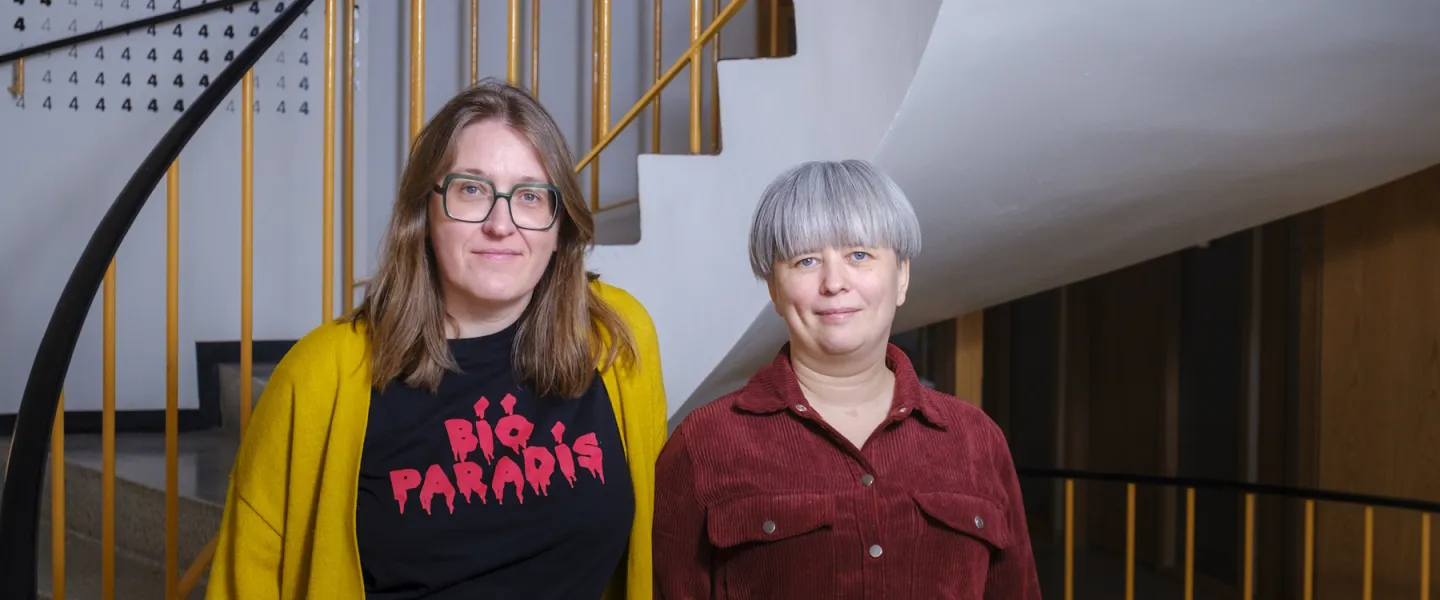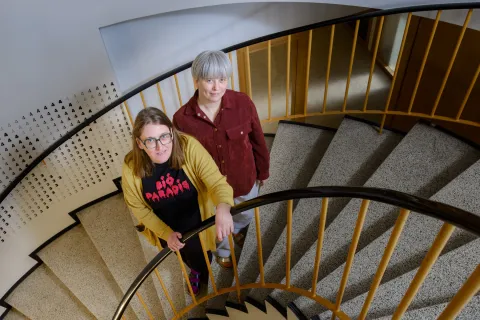
Teachers in primary and secondary schools in Iceland have noticed an increase in derogatory rhetoric amongst students and sometimes experience negative attitudes from parents and guardians when it comes to discussions on LGBTQ+ issues. These are the results of a new study conducted at the University of Iceland on how attitudes towards LGBTQ+ people shape the experiences of LGBTQ+ teachers or teachers who educate about those issues in primary or secondary schools in Iceland.
Auður Magndís Auðardóttir, an assistant professor in Education studies at UI, and Íris Ellenberger, an associate professor in the Faculty of Subject Teacher Education, led the research. It aimed to understand whether, and if so, societal attitudes towards LGBTQ+ people impact the work of teachers in primary and secondary schools. “There are two secondary aims in this research. Firstly, we’re interested in looking at teachers’ experiences who are themselves LGBTQ+ and how societal attitudes towards LGBTQ+ people form their behaviour and working conditions. Secondly, we want to examine how teaching LGBTQ+ issues is approached in primary and secondary schools,” Auður and Íris explain.
Backlash in public discourse was the impetus for the research
When asked about what motivated them to do the research Auður and Íris state that it was driven by the recent backlash in public discourse about LGBTQ people in Iceland, especially regarding the existence and rights of trans people. „In a recent article, Þorbjörg Þorvaldsdóttir, a project manager at Samtökin '78, traces how the backlash has manifested in Iceland. Among other things, she points out that hate speech is very common among young people, that children and young people in the LGBTQ+ youth centre have repeatedly been targeted and that LGBTQ+ education given by Samtökin '78 in schools has been met with much resistance. We believe it’s crucial to research how this backlash has affected LGBTQ+ teachers and teachers who educate about LGBTQ+ issues in schools,” Auður and Íris say.
Teachers asked about students’ positive or negative attitudes
A qualitative research theory was used for the study as this approach is well suited to shedding a light on people’s experiences, conflicting viewpoints and solidarity. A qualitative list of questions was sent to an automated sample of teachers who either identify as LGBTQ+ themselves or provide education on those issues in primary or secondary schools. Nearly 40 answers were received. Teachers were asked about their experiences with positive or negative attitudes from students, parents and coworkers and how those attitudes shape their working conditions. Following the survey, interviews were conducted with 10 teachers who are LGBTQ+ and/or provide LGBTQ+ education in schools.
In addition to Auður Magndís and Íris, Anna Mae Cathcart-Jones was also involved in the research. She graduated as a social studies teacher from the University of Iceland last June. Anna Mae conducted the interviews with the teachers, and her master’s thesis was part of the research.
